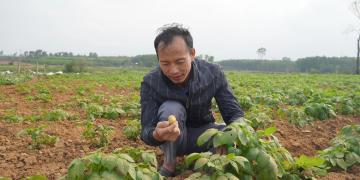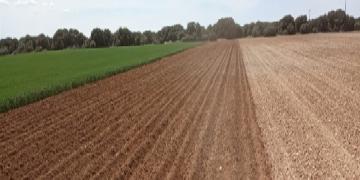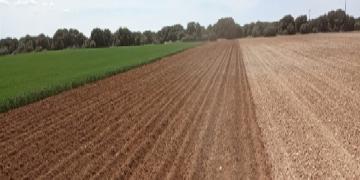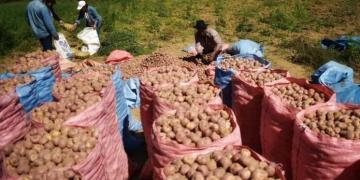Argentina: Due to the crisis in the paper industry, producers would lose much of their investment.
This is a pretty tough year, we are losing money and we haven’t even saved 20% of our investment," warn potato producers, facing a crisis caused by low industrial demand and overproduction.
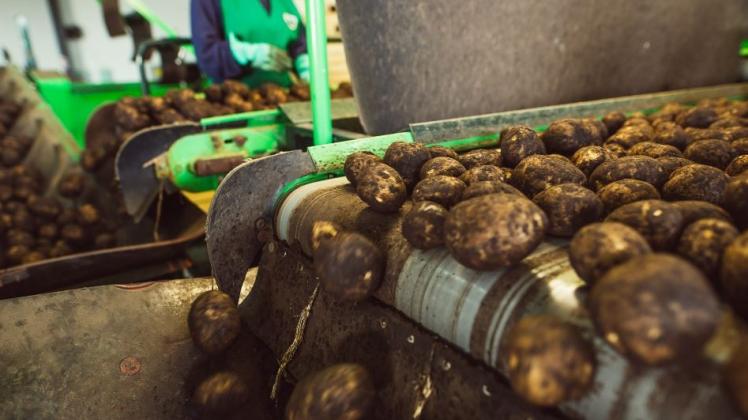
When they learned at the beginning of the year that Lamb Weston, one of the leading American multinational chip producers, was going to launch its operations in Argentina, potato producers thought they would be lucky. Today, the outlook is much bleaker than they thought.
The truth is that this company, which invested more than 300 million pesos to establish itself in Mar del Plata, has yet to put its foot on the accelerator. Neither Lamb Weston nor the rest of the industry has done so in recent months, and this decline in demand from the industry means there is a surplus of potatoes in the domestic market, causing prices to plummet.
Bad news that adds to the high costs in dollars, the difficulties in exporting, and the loss of profitability.
This has led the Regional Federation of Potato Producers (FENAPP) to sound the alarm. "This is a pretty tough year; we’re losing money and we haven’t even recovered 20% of our investment," Alfredo Pereyra, president of the organization, told Bichos de Campo.
This is a stark contrast to 2024, which had been a good year for the concentrated sector, especially in southern Buenos Aires. In reality, it reflects the way the potato market operates, very similar to that of other vegetables. Since the price is tied to supply and demand, when one of the two poles shifts significantly, prices fluctuate, and with them, profitability.
And in this case, the coin didn’t fall on the producers’ side, because what was supposed to be an industrial boom after the arrival of Lamb Weston didn’t happen, and because the entire industry has lowered the production level of frozen, packaged, and derivative products.
Added to this is the threat of climate change, which further complicates matters. "There are still many potatoes in the fields, and frost has already caused serious damage in regions such as southeastern Buenos Aires, Villa Dolores, and the north of the country," the sector representative explained.
In fact, the weather has caused the price of a bag of potatoes, which was 2,500 pesos, to increase by 1,000 pesos in the last few hours. This is because the rains prevented trucks from loading, and the only suppliers this week were producers in Catamarca.
But these temporary adjustments, Pereyra explains, don’t change the situation in the sector because, since they can’t take out their bags, they don’t take advantage of the price increase.
What this diagnosis demonstrates is that the profitability of the nearly 85,000 hectares dedicated to this tuber depend on the industrial chain, as domestic demand for fresh potatoes is lacking. Even with good levels of fresh potato consumption, the Federation asserts that the value chain is so unbalanced that producers are currently "working at a loss."
They can show it in numbers. Planting 1 hectare of potatoes costs between $10,000 and $12,000, of which, at the beginning of the year, they claimed they were losing $1,500 just due to high costs. "Today, we’re in a much worse situation because we’re not recovering anything," Pereyra warned.
Beyond the decline in industrial demand, another factor affecting the activity is the cost structure, many of which are dollarized. The cost that increased the most was leasing, boosted by the production expectations generated by the factory installed in Mar del Plata, but fuel, labor, and supplies also add up.
Until today, before the occasional increase due to the rains, a bag of potatoes cost 2,500 pesos, and, Pereyra estimates, practically all of that went toward costs: "An empty bag costs 400 pesos, a bagged one 700 pesos, and you have harvesting costs. No matter how many bags you sell, you don’t make anything back," the leader noted.
The outlook for the remainder of the year doesn’t appear to be improving. Although Lamb Weston announced it will send its first ships to Brazil at the end of July, the situation in that market is critical, as it is difficult to compete with European fried foods, currently leveraged by low prices and cheap freight.
"It’s the perfect combination for a disaster," Pereyra explained. Added to this is the fact that some multinationals, such as McCain, have set up their plants in Brazil and, as a result, have become less dependent on Argentina.
The way out seems to lie elsewhere, such as China, but this doesn’t seem to be the plan for the industries operating in the country at the moment.
For a sector like potato production, which considers itself resilient, this situation is nothing new. But that’s precisely what’s worrying, because it demonstrates that there has been no concrete assessment of costs and opportunities to avoid successive crises of overproduction.
"It seems like we’re going to have to be hit hard in our pockets to plant less," warned the president of FENAPP, who, looking ahead to the upcoming campaign, asked producers to "effectively monitor how much is being consumed and not simply think about what will be sold."
Fuente: bichosdecampo.com

